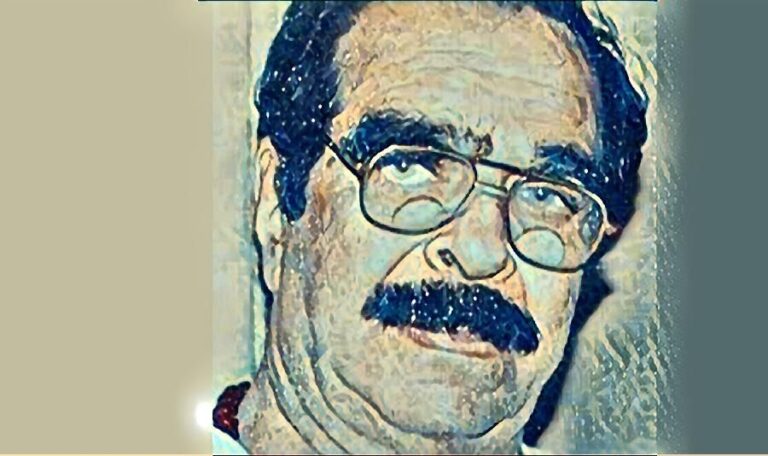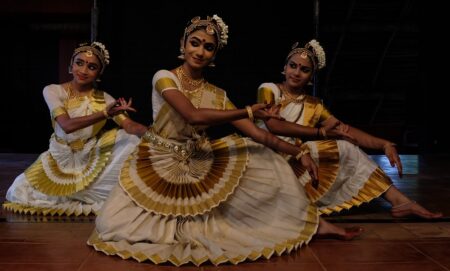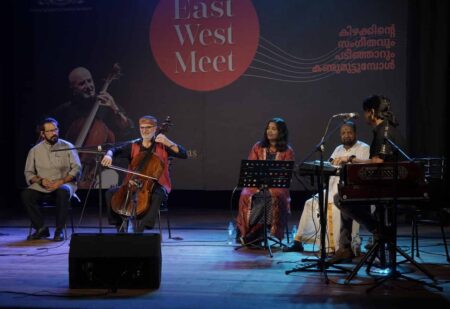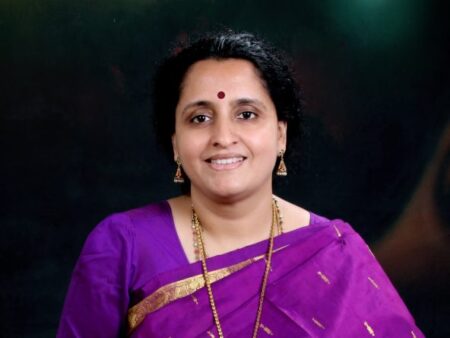Music has the singular power to carry you down the memory lane. Works of LPR Varma stand testimony to this maxim
It was quite inadvertently that I happened to listen to Kayalinakkare pokan enikkoru kalivallamundayirunnu in the film ‘Visarikku kattuvenda’. Both the nostalgic and melancholy appeal of the song had captivated me even during the young days of my life. But more, they also triggered my memory and the image of the music director flashed on my inner eye – LPR Varma, the blue-blooded musician. Distressingly, not much is heard about him nowadays.
For the uninitiated, Lakshmipuram Palace Pooram Thirunal Ravi Varma or LPR Varma was a member of Parappanad Royal family at Changanassery in Kottayam district of Kerala. A carnatic musician, he donned many roles; he was a music director, singer, screenwriter and actor.
LPR was a regular visitor to the Kerala Sangeetha Nataka Akademi and he always held the institution in high esteem. While his ‘Anjatha sakhi, atma sakhi’ in the movie Ollathumathy fetched him the national award and the songs for Mrucha gadikam, the State award, he commented while receiving the Sangeetha Nataka Akademi award for classical music, “I am more rejoiced now”. It was a belated honour for a musician of his calibre since it was awarded only in 1978. Our meetings on numerous occasions at the Akademi are still fresh in my mind.
Sublime music
“I had the privilege of being a student of the Swathi Thirunal Academy (later renamed as Swathi Thirunal College of Music) when it was at the height of its glory. The strict disciplining under Harikesanallur Muthayya Bhagavathar and Semmangudi Srinivasa Iyer had a profound influence on my musical career. But still, there is a growing awareness of a quest for excellence that drives me forward to strive more in this field”, he used to say.
And it meant more than what I could guess, coming as the observation was from an accomplished musician who had to his credit encomiums from all corners and further innumerable bewitching concerts across the country. Further for a musician, blue-blooded, both by pedigree and inimitable artistry, the pursuit for excellence has been a continuous, never-ending journey – a journey to the inaccessible realm of sublime music!
Commendably, many of the lines he scored music for, described this ‘yatra’. “Parannu parannu parannu chellan’, “Kayalinakkare” are striking examples. While the insatiable urge and agony arising out of it are discernible in “Eriyumen hrudayathil” (Manushyan), the secret of his success is reflected by the enchanting melody, “Upaasana, upaasana” which Jayachandran had so endearingly rendered those days when the Vayalar – LPR combine ruled the roost in the filmdom.
In an interview with this writer during the late 1990s, he had observed that the Malayalam films seemed to be playing on a low-key on music. He pointed out that the content and the meter of the lines should inspire the music director to give his best. But the lyrics of such quality are very few and far between nowadays; sure, judging from his myriad songs for the screen and the stage that speak for the glorious past of the film music. The producers and directors are to blame for this dispensation, he had added. He held that a sense of abhinaya can go a long way in helping the music director – a suggestion he demonstrated successfully by enacting the role of a bhagavathar in the film Ayitham.
A unique teacher
True, after withdrawing from the films, he turned to the upbringing of young musicians in the rich tradition of Carnatic music. Most of the faculties in music colleges across Kerala have been his disciples. As a teacher, he felt that institutional teaching of music had its own demerits, but we have no other option. Further, the method of teaching in our institutions left much to be desired. It needs revamping.
A passionate musicologist, I can recall his speech in a seminar at Kshetra Kalapeedhom, Vaikom. “Is it not lamentable that the excessive craze of our young Kathakali musicians for Carnatic music has disfigured that branch beyond recognition?” he asked. One can only listen to him spell-bound while rendering both Carnatic and kathakali music in the same ragas, highlighting their subtle intricacies.
When we met last, he revealed his ambition for establishing a gurukulam in Changanassery, his native place. But I am not sure whether it had materialised; Varma died in 2003 at age 76.




